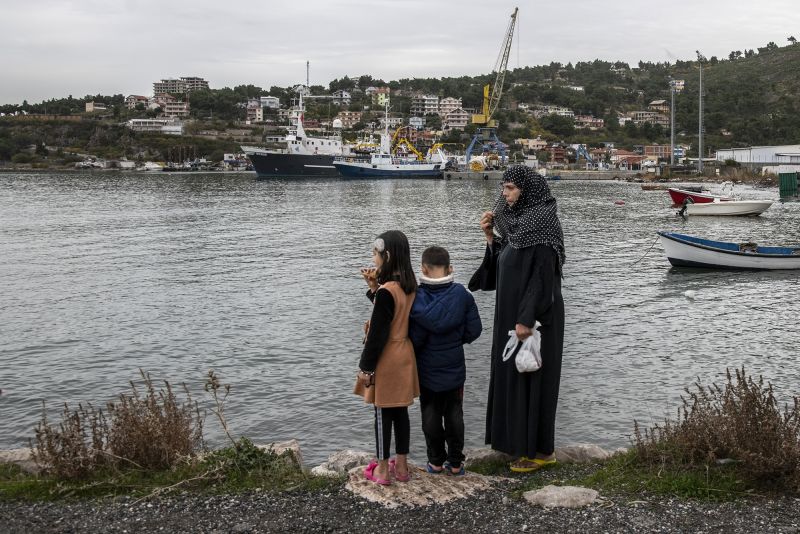
Controversial Agreement to Transfer Boat Migrants to Albanian Centers Approved by Italian Senate

A recent agreement between Italian Prime Minister Giorgia Meloni and her Albanian counterpart to transfer boat migrants to Italian-run centers on Albanian soil has stirred up controversy and passed the Italian Senate. Learn more about the details and implications of this contentious plan.
The Approval Process
In a significant move that has sparked heated debates, the Italian Senate has approved a contentious plan formulated by Italian Prime Minister Giorgia Meloni and her Albanian counterpart. The agreement, reached in November, entails the transfer of boat migrants to specialized Italian-operated facilities located in Albania.
An Afghan refugee family near the port in Shengjin.
The plan underwent a rigorous voting process in the Italian Senate, ultimately receiving a 93 to 61 vote in its favor. Prior to this, the proposal had already secured approval in the lower house of parliament, paving the way for its progression through the legislative channels.
This initiative has not been without its critics, particularly from Italy's opposition factions, who have likened the planned centers in Albania to 'Italy's Guantanamo Bay.' Human rights organizations have also raised concerns, citing the absence of EU oversight in Albania, which could impact the treatment and rights of asylum seekers.
Implications and Operation
One of the key points of contention surrounding the agreement is the divergence from EU protocols on the detention and processing of asylum applicants. Albania, not being a member of the EU, is not bound by the same regulations that govern the treatment of migrants within the union.
The construction and staffing of the centers in Albania will be financed by Italy, with Italian officials overseeing the processing of up to 3,000 asylum applications per month. The focus will primarily be on individuals rescued by Italian military vessels, excluding those rescued by non-governmental organizations.
Notably, the accord specifies that women and children will not be subject to transfer to Albania, emphasizing a selective approach to the relocation of migrants. The influx of migrants arriving by boat in Italy has been a pressing issue, with over 157,000 individuals reaching the country through this route in 2023, as reported by the Italian interior ministry.
Criticism and International Response
Criticism of the plan has been vocal, with Amnesty International's Matteo De Bellis labeling the automatic detention of individuals in the Albanian centers as arbitrary and unlawful under international law. De Bellis raised concerns about the prolonged detention period of up to 18 months, highlighting the restrictive nature of the arrangement.
The transportation of rescued individuals to Albania has also drawn scrutiny, with De Bellis warning of potential risks to lives and the well-being of those already in vulnerable situations. The parallels drawn to the UK's similar plan to relocate asylum seekers to Rwanda underscore a broader international context of controversial migration policies.







